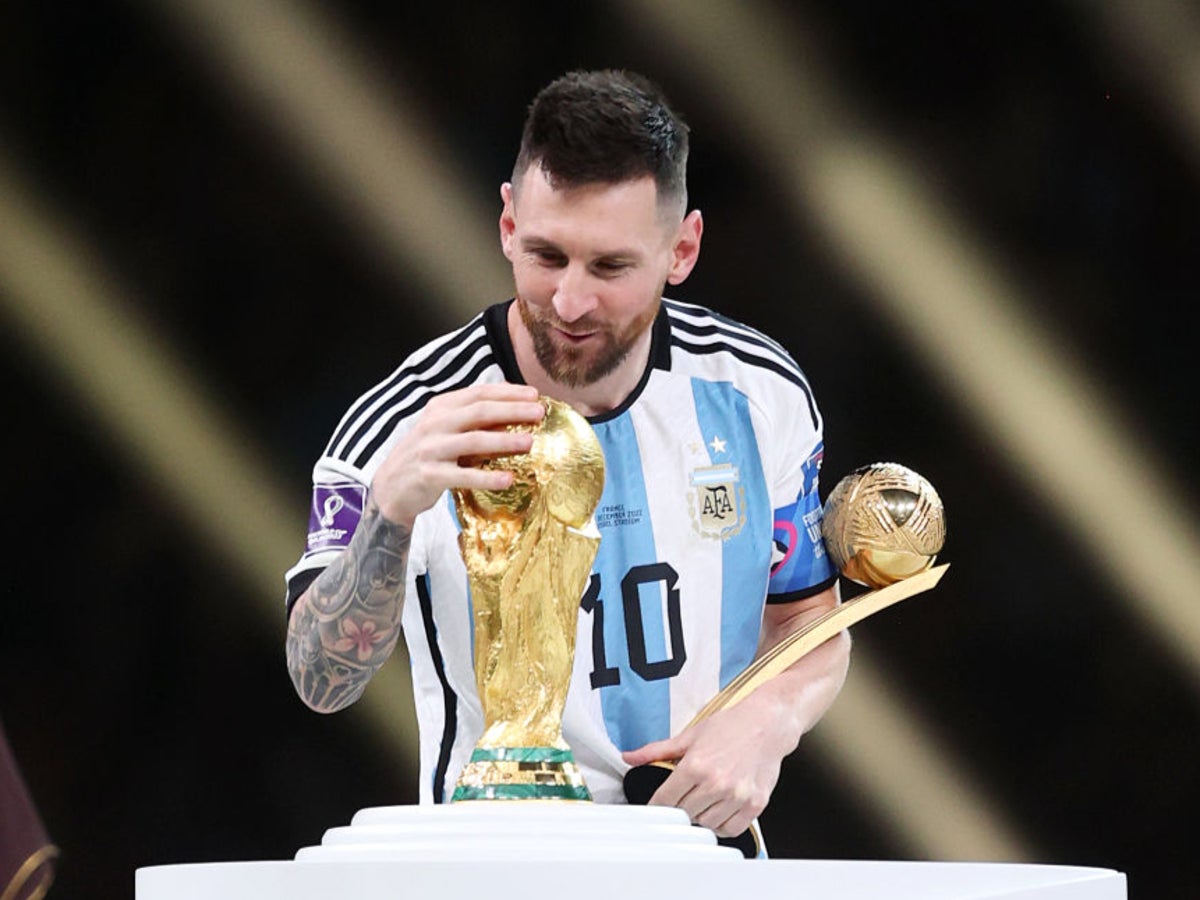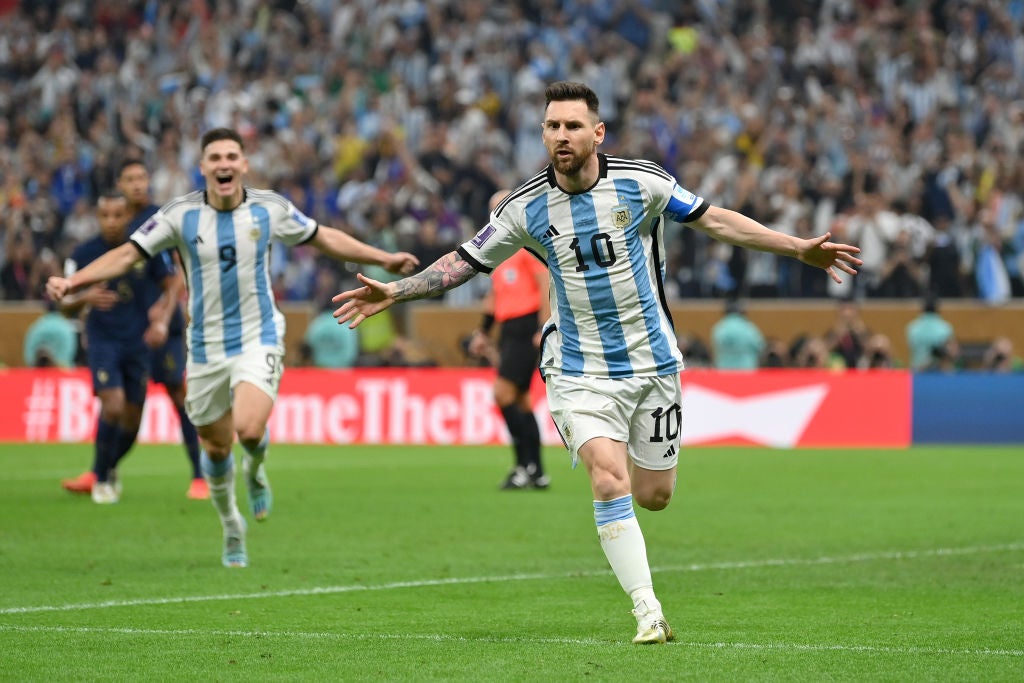
A 13-year-old Lionel Messi once gave a Q&A interview while he was still playing for the youth teams at Newell’s Old Boys. Speaking to Diario La Capital, a local newspaper in Rosario, he revealed that if he could eat any meal, it would be pollo con salsa (chicken). If he could date any model, it would be Argentine television personality Nicole Neumann. If he could watch any film, it would be 1994 adventure comedy Baby’s Day Out. And if he could do any job, he would be a PE teacher.
Earlier this week, a grainy scanned copy of that interview went semi-viral across social media. You might have seen it, in fact. The story was picked up by several news websites and content platforms. It was one of the most “upvoted” posts on the r/soccer subreddit, no less. It was shared and reshared, ripped and aggregated, recycled and regurgitated until we had all had our fill of it, in the way that every new and previously undetected morsel about Messi is.
Except this was not the first time the interview had done the rounds. It hadn’t been lying in someone’s attic for the past 22 years, only to be uncovered a few days before the most consequential night of Messi’s long career. That would be quite the coincidence, when you come to think of it. It had in fact first come to light three years ago, when it was shared and reshared, ripped and aggregated, recycled and regurgitated until we had all had our fill of it then too.
That is the challenge that Messi has posed to this profession since first declaring his genius: what else is there to say that has not already been said? Once you have called him the best to ever do it, where exactly do you go from there? This was Messi’s 26th World Cup appearance, an all-time record. The press boxes at these tournaments hold hundreds of written journalists, all filing hundreds of words. Multiply that by 26 and that’s several million words in total. And that’s just the World Cups, and just us who didn’t pay to get in.
Yet at least with a final comes finality, winners and losers, clean breaks and sharp edges. So though you can try to find a new angle – you can write about Angry Heel Turn Messi, Geopolitical Tool Messi, the Still Needs The Other 10 Lads Every Now and Again Messi – the Messi that everyone still wants to hear about at a World Cup final, the Messi that everybody still wants to talk about at a World Cup final, the Messi that every writer privileged enough to be at the Lusail wanted to end up writing about is the Great Messi, on the edge of greatness.
And perhaps more than any other in the history of the sport, this game was about what people want, because that was exactly what Messi wanted too.
Just before kick-off at the Lusail, as he walked back towards the touchline to hand over France’s pre-match pendant, something in his peripheral vision caught Messi's attention. It was the movement of a photographer, going in for a close-up on the trophy, which was still standing on its plinth between the dugouts. Messi stole a look at it for a couple of seconds, then went back to carrying out his pre-match duties. By the time they were completed, it had gone again. You asked yourself if that would be as close as he got to the trophy all night. You were not asking yourself that for long.

It began well – perhaps too well – and as it often has over the past month, with Messi standing over a penalty. The first World Cup final goal of his career was his sixth at this tournament, two-thirds of them at that point having come from the spot. Even that resembles a triumph of sorts. Penalty-taking has always been the one curiously average aspect in his magisterial game, the one area in need of improvement. He has scored four of five in Qatar, six of seven including shoot-outs, comfortably bettering his mediocre career record.
Yet nobody inside the Lusail or the billions watching worldwide came to see Messi score from 12 yards. Had that been all, they may have even left feeling slightly short changed. What they came for was the goal that appeared to take hold of this final, that appeared to have won it. And even though it was the best team goal to grace this stage since Mexico City in 1970, its high point came from Messi’s left foot, that instrument of grace and beauty that is equally just as ruinous and devastating, flicking the ball backwards to set Julian Alvarez away, to Alexis Mac Allister, to Angel di Maria for two.

Argentina had never had it this good and they had never had it this easy. The only problem was that 120 years of history suggested it should not be. For the first 80 minutes of this final, France put in a listless, abysmal performance that was only rendered even more inexplicable by the powers of resurrection that followed. Kylian Mbappé is the second man to score a hat-trick in a World Cup final. He is also the first to do so and lose. The comeback that Didier Deschamps’s side produced provided us with the best, most dramatic World Cup final in living memory.
But even that is secondary to the final chapter of one of sport’s most compelling stories, the type that sport rarely allows to be written. It was nearly even better. It was nearly perfection. For a minute or 10 back there, it appeared as though Messi would be the match-winner, as though the ugliest of his near-century of goals for Argentina would be the difference. It would not. But who won it was not important. All that mattered was that they did. Messi took the first penalty of the shoot-out, as he did in the quarter-final, leaving his fate, his destiny and arguably his legacy in the hands of others.
When that interview with a 13-year-old Messi was shared around, many missed arguably the most interesting parts. As well as the PE teacher ambition, Messi was asked several quick-fire questions about what he wants to achieve in life. His “objective” was to finish secondary school. His “goal” was to play in Argentina’s first division. His “hope” was to play in it with Newell’s. His “dream” was to play for Argentina. Assuming that he already knew he was fairly decent at football, it was hardly the stuff of Icarus.

And yet so far, he has fallen short against almost every single one of those measures. Messi never finished school, being whisked off to La Masia just a few months after giving that interview. He is still waiting for his debut in Argentina’s first division, just as he still has not played for Newell’s. He did not become a PE teacher, either. He would achieve the most difficult of those ambitions, though. He would achieve his dream and play for Argentina.
And after 17 years in international football, after the longing and the waiting, after the retirements and coming out of retirements, after breaking down in the dressing room after the quarter-final defeat to Germany in 2010, crying, convulsing and wailing at a story that seemed doomed to repeat itself, there is finally something new to say. Lionel Messi is a World Cup winner. And maybe if you asked a 13-year-old Messi, he would say that’s enough.







